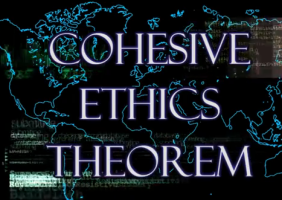Anyone who visits the VFA on a regular basis may have had a bit of a surprise when they visited the site today. It’s been completely revamped thanks to some amazing new members in the VFA’s team (and especially ‘web dude’!) Do pop on over and check it out!
Secular Jinnah – Saleena Karim Interview – Full
TRAILER FOR MY INTERVIEW AT LIGHTUPWITHSHUA Here are all the links to my 3-part interview with Shua Khan Arshad at her podcast on conscious living and parenting. Please feel free to like and share this post, and please like, share and comment at YouTube too. PART 1 – discovery of the Munir quote, reactions to
Happy New Year 2020
Well, it’s the end of the year, and also the decade. Happy New Decade! May 2020 and the next ten years be peaceful and prosperous for all.
Saleena Karim Breaks Her Silence – Secular Jinnah Interview
In the 15 years since I began writing the books titled Secular Jinnah I have always refused interviews, for my own reasons (with the exception of one or two written online ones). But in August, a chance query email from a fabulous lady, Boston-based Shua Khan Arshad, led to my decision to finally give an
Secular Jinnah & Pakistan: Revised Enlarged Edition Released Today
Seven years to the day after the original release of Secular Jinnah & Pakistan: What the Nation Doesn’t Know, I am pleased to announce that the second revised and enlarged edition has just gone into print, with a brand new gold version of the original cover. Oh, and with plenty of revisions, of course. They include:
Launch series guest post at the Visionary Fiction Alliance
The Visionary Fiction Alliance website is presently running a series of posts to celebrate its launch, written by its founding members. Today is my turn. The article is titled: Visionary: Fiction of the Future, a slightly edited version of a guest post that I originally wrote for the VF web-ring. Head on over and say hello.
Fiction for the future: VFA launched
I’m pleased to announce that the Visionary Fiction Alliance – of which I am a founding member – has gone live today.
Its key aims are to promote and increase awareness of visionary fiction, and to help its authors. According to the site, the characteristics of VF include:
- Growth of consciousness is the central theme of the story and drives the protagonist, and/or other important characters.
- Oftentimes uses reincarnation, dreams, visions, paranormal, psychic abilities, and other metaphysical plot devices
- Is universal in its worldview and scope
Founding member Jodine Turner has added this thought-provoking line to its definition:
“Visionary Fiction speaks the language of the soul. It offers a vision of humanity as we dream it could be.”
I like that line because it sums up Iqbal’s belief that art and literature are like collective dreams, as per a recent post here.
Win 7 novels
As part of the launch celebration, the VFA is giving away seven of its founders’ titles to one lucky winner (and that includes a copy of Systems). Come on over and enter for a chance to win!
(Image is copyrighted -Saleena Karim)
The Battle for Marghdeen – out now
At midnight Karachi time, Khurram Ali Shafique’s 2017: The Battle for Marghdeen went live at Smashwords. You can pick it up by following the link below. And, for a short time only, we’re celebrating the launch by leaving it open for free download to anyone who uses the coupon code available here.
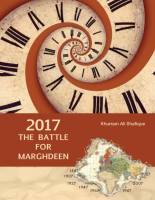 1) Go to the page for the book
1) Go to the page for the book
2) Scroll down the page and choose a format – epub, Kindle, PDF etc.
3) Apply this code: UH45Q
Enjoy!
Note: This offer expires at midnight, 18 August (California time).
The Battle for Marghdeen – Introduction
This title has already been released. Further info here
Anyone who has read Systems will know that its publisher, Libredux, is named after the ideal social system based on the Cohesive Ethics Theorem. When I used that name, I had no plans for it other than to publish the novel. But now, and quite unexpectedly, Libredux is taking on its second title, this time penned by the Marghdeen Learning Centre’s Khurram Ali Shafique.
At around the same time as I was formulating the theorem for the novel, Mr Shafique was formulating a theory of his own. His new book is inspired by a pattern he has found in the writings of Iqbal, which reveals a seven stage cycle for the development of a nation, or what Iqbal called the ‘collective ego’.
The book, titled: 2017: The Battle for Marghdeen, is due out on 14 August 2012 (coinciding with Pakistan’s 65th independence anniversary). I’m reproducing the Introduction below, to give you an idea of what it’s about. Further details will come later.
NB: Marghdeen is a fictional city on Mars, representing an ideal society as conceived by Iqbal in his epic poem, Javid Nama.
——————————————————–
Introduction
Khurram Ali Shafique has one of those rare gifts of being able to find patterns in the most unexpected of places. His discovery of the ‘seven stages’ in Iqbal’s works, (having first seen the connection between Iqbal’s epic poem Javid Nama and his famous Reconstruction lectures) is most intriguing and has wider implications for the study of history with an essentially inductive method. This is not to suggest it is a tool of prediction, but it does provide a method for analysing the psychological direction in which a given society is moving as a ‘collective ego’. Moreover, it serves to illustrate the universal principles that motivate all nations in pursuit of a Higher goal, and to also show what happens when these same principles are neglected.
 In this work, Mr. Shafique has looked at Pakistan (and also Bangladesh) as a case in point. The most interesting part of the cycle can be seen at stage four – the ‘freedom’ stage (1947-67). At first glance it seems thatPakistanis not moving as we might predict in light of the cycle of stages. As Mr. Shafique shows, this is because the ‘freedom’ stage marks the point at which individuals and small sections of Pakistani society actively began to focus on individualistic goals instead of collective goals. Some commentators on the history of Pakistan have similarly concluded that there is a point of departure from the ‘Pakistan idea’ in the same period. The main difference between most of these commentators and Mr. Shafique however is that Mr. Shafique has illuminated the fundamental reason for the departure in clear terms. ThePakistanidea was the Muslims’ collective basis of partition in 1947, but the point of departure also becomes manifest soon after 1947. The implications for the later stages, especially the final one we have entered as of 2007 (‘creation’), are very interesting indeed, if not alarming, depending on how one interprets the data.
In this work, Mr. Shafique has looked at Pakistan (and also Bangladesh) as a case in point. The most interesting part of the cycle can be seen at stage four – the ‘freedom’ stage (1947-67). At first glance it seems thatPakistanis not moving as we might predict in light of the cycle of stages. As Mr. Shafique shows, this is because the ‘freedom’ stage marks the point at which individuals and small sections of Pakistani society actively began to focus on individualistic goals instead of collective goals. Some commentators on the history of Pakistan have similarly concluded that there is a point of departure from the ‘Pakistan idea’ in the same period. The main difference between most of these commentators and Mr. Shafique however is that Mr. Shafique has illuminated the fundamental reason for the departure in clear terms. ThePakistanidea was the Muslims’ collective basis of partition in 1947, but the point of departure also becomes manifest soon after 1947. The implications for the later stages, especially the final one we have entered as of 2007 (‘creation’), are very interesting indeed, if not alarming, depending on how one interprets the data.
Yet Mr. Shafique has also shown that surface appearances rarely if ever represent the whole of reality. In fact the decision and actions taken by a collective ego or nation are based, in his words, ‘either on the real goal collectively adopted thirty years earlier, or its misinterpretation’ (emphasis mine). What this means is that the collective ego will always choose between one of two directions, or what the Quran calls the ‘two highways’; and this has obvious implications for that much misunderstood concept called the ‘Two Nation Theory’. Again, as Mr. Shafique puts it, whether or not Pakistan proves true to herself ‘will depend, eventually, on whether or not its people manage to make its history a success story. That in itself seems to a daunting task just now, but this pattern itself might be a key to the solution’.
In other words, if the Pakistani nation can become consciously aware of its choices, it will be in a better position to make the right one and so succeed in the final phase. With this in mind, he has not only outlined the double nature of Pakistan’s path using some compelling evidence, but he has also supplied what he sees as the defining goal for the last phase, and the all-important turning point (2017) which will ultimately determine the outcome. Will Pakistan recognise her true nature? Will she transform into Marghdeen?
Whether or not Pakistan succeeds in the end, her journey through its seven stages nevertheless stands to offer invaluable information on the universal principles that motivate all nations in pursuit of a Higher goal.
And in any case, Mr. Shafique is optimistic, for he believes – based on what his theory truly implies – that there is no such thing as an evil age. Indeed he is, as Iqbal once described himself, ‘almost a fatalist in regard to the various forces that ultimately decide the destinies of nations’. This work thus presents an exciting new development not only for Iqbal and Pakistan studies, but for the field of history as well.
Saleena Karim, Nottingham, 28 July 2012
Interview at Michelle Gordon’s blog
Today I’m being interviewed at Michelle Gordon’s blog. Michelle’s interest is in all things spiritual, and she is author of The Earth Angel Training Academy. She is also a founding member of the upcoming Visionary Fiction Alliance.
This explains why the questions she asked me were little different from the norm. I was asked about my ‘spiritual’ beliefs rather than just about my writing. Since this kind of stuff is so very fascinating to me, I got on my soapbox at one point. Briefly. 🙂
You can read the interview here. Do pop over and say hi.
Been a while … New visionary fiction site
This is just a quick post to say that though I’ve not posted for a while (and didn’t anticipate being so slow), I’m still around and hope to start blogging regularly again soon. The reasons for my absence are to do with personal and work distractions, but I have lots of news to share, so watch this space.
In the meantime, anyone coming through from today may notice a new banner in the right-hand column of this page, headed: ‘VFA Founding Member’. It stands for ‘Visionary Fiction Alliance’ (sounds grand, doesn’t it?). The web-ring that Jodine Turner, Shannan Sinclair and I started just a couple of months ago has already attracted 12 authors and we are about to launch a whole site dedicated to the promotion of visionary fiction. More to come later.
Literature and art as collective dreams
Iqbal believed that art and literature are like collective dreams, which come true. Therefore they should present the world as it should be, and not as it appears to be.
This line is taken (with permission) from Khurram Shafique’s upcoming work examining ‘peaks’ in the timeline of Pakistan. He has divided its history into seven phases, each lasting approximately twenty years each, starting from way back in 1887. Pakistan of course formally came into existence in 1947 but Mr Shafique is looking at the development of this ‘nation’ from its conception, of sorts (or at least, that’s how I understood it, and hope I am correct). In fact this work is a completely new discovery looking at what he calls the ‘stages of collective self-development’.
Anyway, I just wanted to quote that line because it spoke to me as a writer. For anyone who wants to know more, Mr Shafique’s formal publication will be printed soon – and will possibly be also available in ebook form.** In the meantime, he has been talking about it in some detail for quite a while now over at the Republic of Rumi website. See this blog post for more.
** Postscript: The ebook has been published by Libredux publishing, and details can be found here.
On Murtaza Razvi’s death
I am totally shocked this morning to hear about the murder of head of Dawn’s magazines Murtaza Razvi on Thursday (19 April 2012). Very sad news indeed, and my thoughts go out to his family and friends.
To be or not to be didactic
The Marghdeen Learning Centre’s latest course on Iqbal is exploring the philosopher’s take on art (with a focus on literature). Though he was born in the period when l’art pour l’art was developing as a new movement, Iqbal didn’t believe in art for art’s sake. In fact, he took a dim view of it. In one of his articles published in July 1917, he wrote:
“[Art for art’s sake] appeals more to imagination than to will, and on the whole acts as a narcotic on the mind of the reader. … the good in art is not necessarily identical with the good in life; it is possible for a poet to write fine poetry, and yet lead his society to Hell. The poet is essentially a seducer; woe to his people, if instead of making the trials of life look beautiful and attractive he embellishes decadence with all the glories of health and power, and seduces his people to extinction.”
(I should add that in this article Iqbal was talking specifically about poets but his views applied to art in general.)
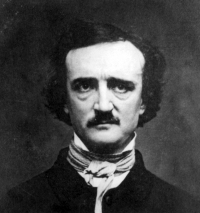
19th century author Edgar Allan Poe famously called didactic poetry ‘heresy’, but he was also an early pioneer of modern sci-fi
The late sci-fi author and academic Joanna Russ suggested in 1975 that all science fiction is didactic in the vein of medieval fiction. The word ‘didactic’ itself originally meant art with educational or informative content. It was only from the 19th century onwards that it was redefined to mean something ‘burdened’ with this content. It seems that this negative definition of didactic fiction coincides with the onset of modern materialism (as the outcome of the Enlightenment period).
I wonder what Iqbal would have made of visionary fiction. Part of its appeal – for me, at least – is that it isn’t art for the sake of art. And yet funnily enough, over at the Visionary Fiction Goodreads group we all recently agreed that visionary fiction isn’t overtly ‘preachy’. Is this a contradiction? Not really. We can liken it to how non-fiction deals with facts. Whilst non-fiction writers present their facts as they see them and obviously have an opinion of their own, they don’t necessarily claim to having the final word on a subject – at least, not if they’re honest.
Visionary fiction is didactic in the former sense, rather than the latter. In fact, I’ve always felt that all fiction has something to teach us, whether or not that is the author’s conscious intent. It all has a value. The real question is whether that value is ‘good’ or ‘bad’, that is, constructive or destructive. Iqbal believed the most destructive form of art is pessimistic, nihilistic, and amoral, even if it uses beautiful imagery. It glorifies death. True constructive art, in Iqbal’s view, is optimistic, life-affirming, and encourages us to face life’s challenges – large and small – with courage and dignity.
“The highest art is that which awakens our dormant will-force, and nerves us to face the trials of life manfully.”
In other words, Iqbal believed that art doesn’t just reflect human psychology (collective and individual). It can actually have a hand in shaping our destinies. A huge claim, but it resonates with those who value the power of ‘story’.




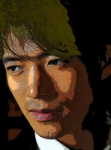

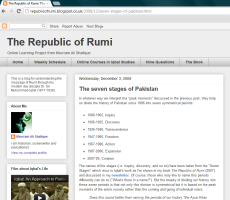
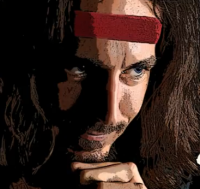 Today I’m being interviewed at the popular reviews site Mother/Gamer/Writer. As well as explaining exactly what Peter Manner (aka the Peace Man) from Systems has in common with Scorpion from the video game series Mortal Kombat, I have also mentioned my search for any metal music bands to help me with recording a song that appears in the novel …
Today I’m being interviewed at the popular reviews site Mother/Gamer/Writer. As well as explaining exactly what Peter Manner (aka the Peace Man) from Systems has in common with Scorpion from the video game series Mortal Kombat, I have also mentioned my search for any metal music bands to help me with recording a song that appears in the novel …
